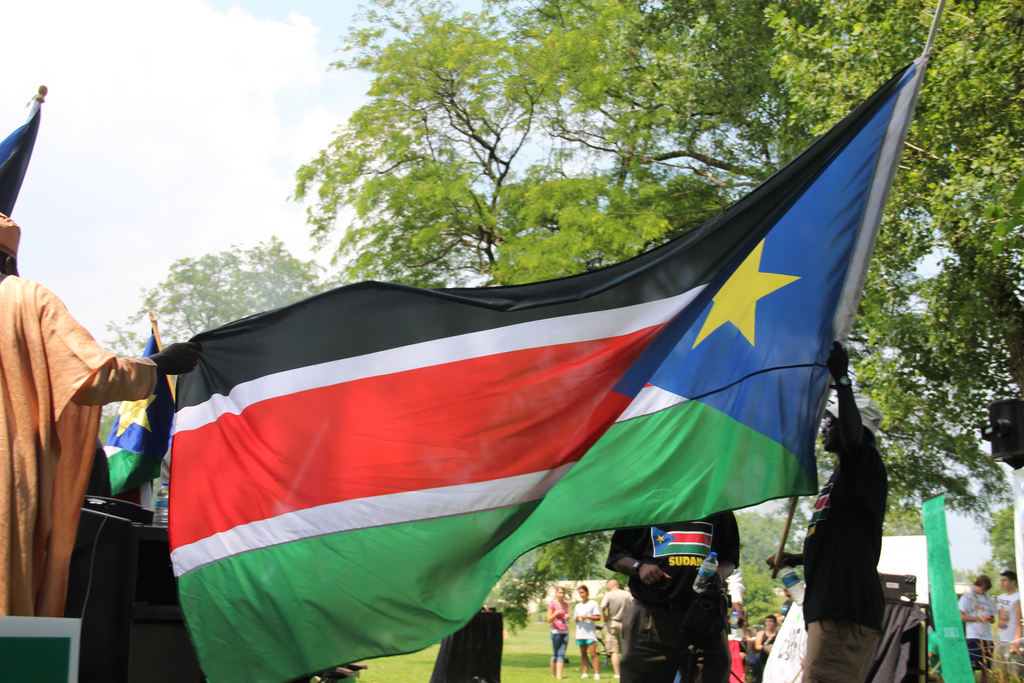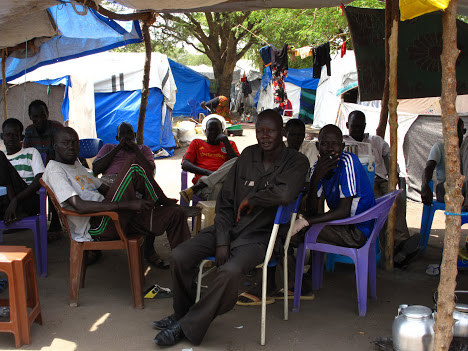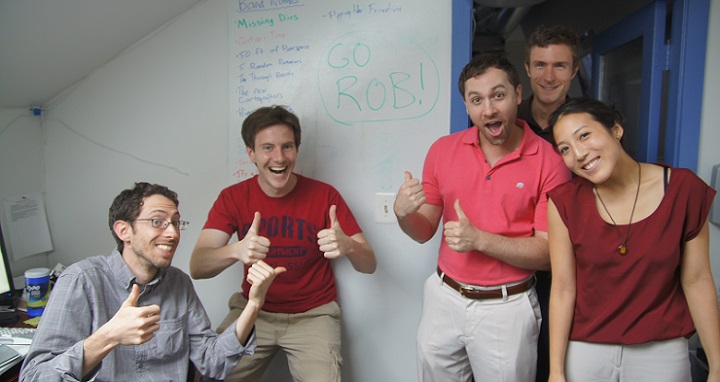By Zacharia Diing Akol and Ella Duncan
“It is a once in a lifetime opportunity to be older than your country, to raise it and help it grow.” – Zacharia Diing Akol
The crisis that broke out in South Sudan in December 2013 has multiple root causes. A broken sense of national identity and lack of trust in the state at the national level, coupled with intercommunity grievances and mistrust, as well as high level of individual trauma and frustration have resulted in 22 months of a conflict that killed an estimated tens of thousands of people and displaced more than 2 million. South Sudan gained its independence in 2011, yet the cycle of violence stretching back to the First Sudanese Civil War in 1961 continues today. It is in this environment of violence and war that peacebuilder Zacharia Diing Akol was born.
It was a long path for a child in war-torn Jonglei State to become a researcher who shapes the growth of a new nation. At the age of 11 Zacharia left his family to cross into Ethiopia by foot, traveling with groups of other children and young men, all fleeing the Second Sudanese Civil War. His personal journey has taken him around the world and back to South Sudan, where he now works as a Senior Policy Analyst at the Sudd Institute in Juba, supporting good governance and policy as part of what Zacharia calls the “collective journey” to build South Sudan.
When Zacharia first returned to South Sudan, he intended to stay for two weeks, but quickly became convinced his skills as a policy expert and researcher were needed to support the fledging nation. As Zacharia says, “It is a once in a lifetime opportunity to be older than your country, to raise it and help it grow.”
Zacharia believes data can effect positive change by helping people, organizations, and governments make better choices. The pursuit of this belief drove him to co-found the Sudd Institute.
The Sudd Institute is an independent research organization premised on the belief that public policy, especially in this key historical moment of state building in South Sudan, must be informed by reliable data, objective analysis, and thoughtful debate. Backed by data and evidence, Zacharia and the Sudd Institute make policy recommendations to the new government.
For Zacharia, giving solid evidence-based recommendations is the best way to effect smart and responsive policy. Furthermore, Zacharia believes evaluations are for posterity, that they capture the realities of the new country – he says, “People will look back in the future and ask, what were they thinking? What were they doing? The work of the Sudd Institute will help people understand what was going on during this time in South Sudan.”
Zacharia hopes that his work will inspire other civil society organizations so that evidence-based policy recommendations become the norm in South Sudan. The next project for Zacharia and the Sudd institute is to include trainings for CSOs so that local organizations can provide their own recommendations for action, and policy advocacy efforts across South Sudan may be strengthened by evidence. Through sharing information and skills, Sudd hopes to make their goals and impact sustainable. By empowering more groups to engage in evidence based advocacy, the institute’s work strengthens public policy lobbying power to inform government decisions.
The Sudd Institute also works though public research publications, including a weekly review, monthly brief, and quarterly special report. These publications aim to give everyone – from civil society organizations (CSOs) to government officials – the research they need to make informed decisions about the trajectory of South Sudan. Moving forward, the Institute is increasing the influence of their work by forming more direct relationships with CSOs using their publications.
These goals are especially important in South Sudan because as a new country, that was formed by and continues to be defined by conflict, “It is not just important to end conflict, it is about HOW you end it. The process is as important as the ending.” Zacharia sees that there must be a collective effort to address the issues candidly with honest data and evaluation, because he says the country has this choice: “deal with the issues, or the issues will deal with you”.
“It is not just important to end conflict, it is about HOW you end it. The process is as important as the ending.”
Visit the Sudd Institute’s website at http://www.suddinstitute.org/
Read their policy briefs and other publications at http://www.suddinstitute.org/publications/
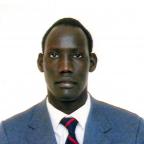
Zacharia Diing Akol is the Director of Training at the Sudd Institute. Diing has extensive experience in community outreach, government and organizational leadership. He is currently working on M.Res./Ph.D. in political science at the London School of Economics. Diing’s research interests include the role of civil society organizations in peacebuilding, traditional leadership and democratic governance, post-conflict reconstruction, faith and public policy, and the dynamics of civil war. Diing holds a Master’s degree in Peace and Justice Studies from the University of San Diego and two Bachelor’s degrees from Michigan State University in Public Policy & Administration and Policy & Applied Economics.
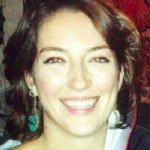
Ella Duncan is the DME for Peace Project Manager, DME for Peace is a project of Search for Common Ground which connects a growing global community of over 4,000 members to over 800 resources on Design, Monitoring, and Evaluation for Peace and Peacebuilding programming. Ella received her B.S. from Cornell University.
This post originally appeared on DME for peace.
Featured image: Daniel X. O’Neil (Creative Commons License)

